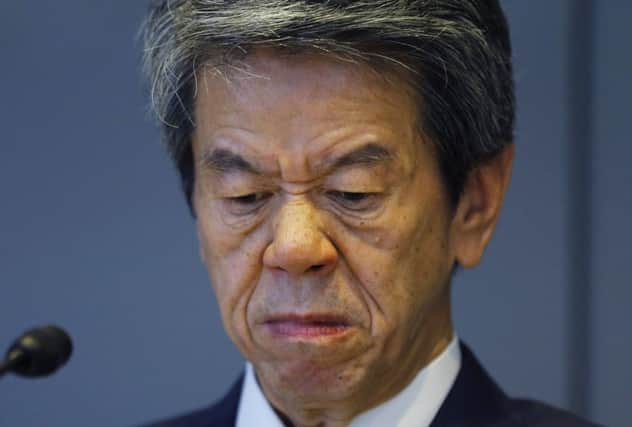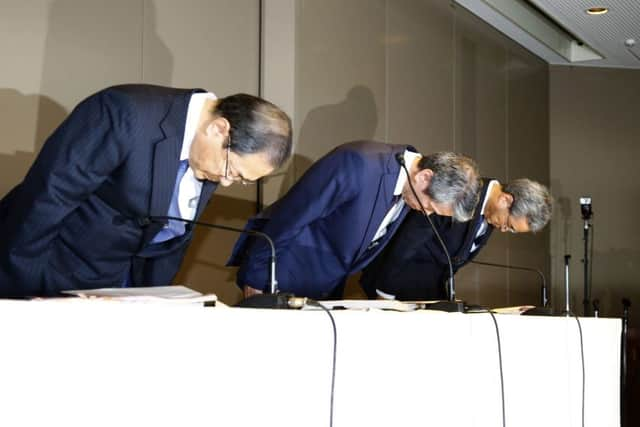Goodbye, Tosh: Bosses quit over Japanese accounting scandal


Hisao Tanaka resigned after an independent panel commissioned by Toshiba found there had been a systematic cover-up of underperforming parts of the group between 2008 and 2014.
Japan’s finance minister Taro Aso warned the Toshiba case could undermine confidence in corporate governance in Japan, adding that the affair was “very regrettable”.
Advertisement
Hide AdAdvertisement
Hide AdThe Tokyo-based firm - whose slogan is “Hello Tosh, Gotta Toshiba?” - traces its history back to 1873 and makes products as diverse as nuclear power stations to washing machines.


But the parts of the group that were in trouble in the six-year period include its computer and semiconductor businesses.
The firm said: “The company takes the situation very seriously and we deeply apologise to our shareholders, investors and all other stakeholders.”
Mr Tanaka, who is also president, is expected to be succeeded by chairman Masashi Muromachi.
Advertisement
Hide AdAdvertisement
Hide AdThe group’s vice-chairman Norio Sasaki is also resigning, as he served as president between 2009 and June 2013, when much of the profits overstatement occurred.
Toshiba said it would “thoroughly analyse” the panel’s findings and would “examine measures to prevent recurrences”.
Mr Tanaka said at a press conference: “We have a serious responsibility.”
He added the company will need to “build a new structure” to reform itself.
Advertisement
Hide AdAdvertisement
Hide AdToshiba’s accounting scandal reportedly began when securities regulators uncovered problems as they probed the company’s balance sheet earlier this year.
Japan has been trying to regain global investors’ confidence with better corporate governance after Olympus was found to have covered up 1.7 billion US dollars (£1.1 billion) in losses in late 2011, in what was Japan’s worst corporate governance scandal.
Olympus, which makes medical equipment and cameras, was mired in controversy after its British president Michael Woodford blew the whistle on how the company hid losses.